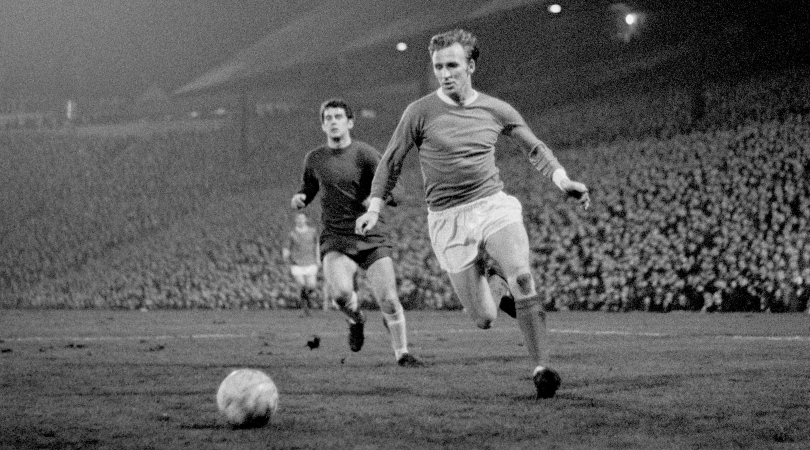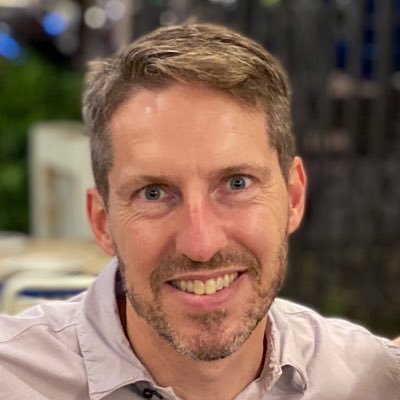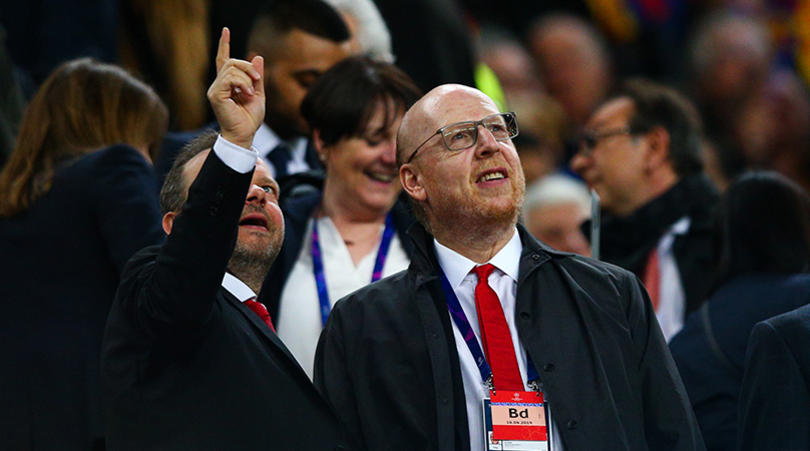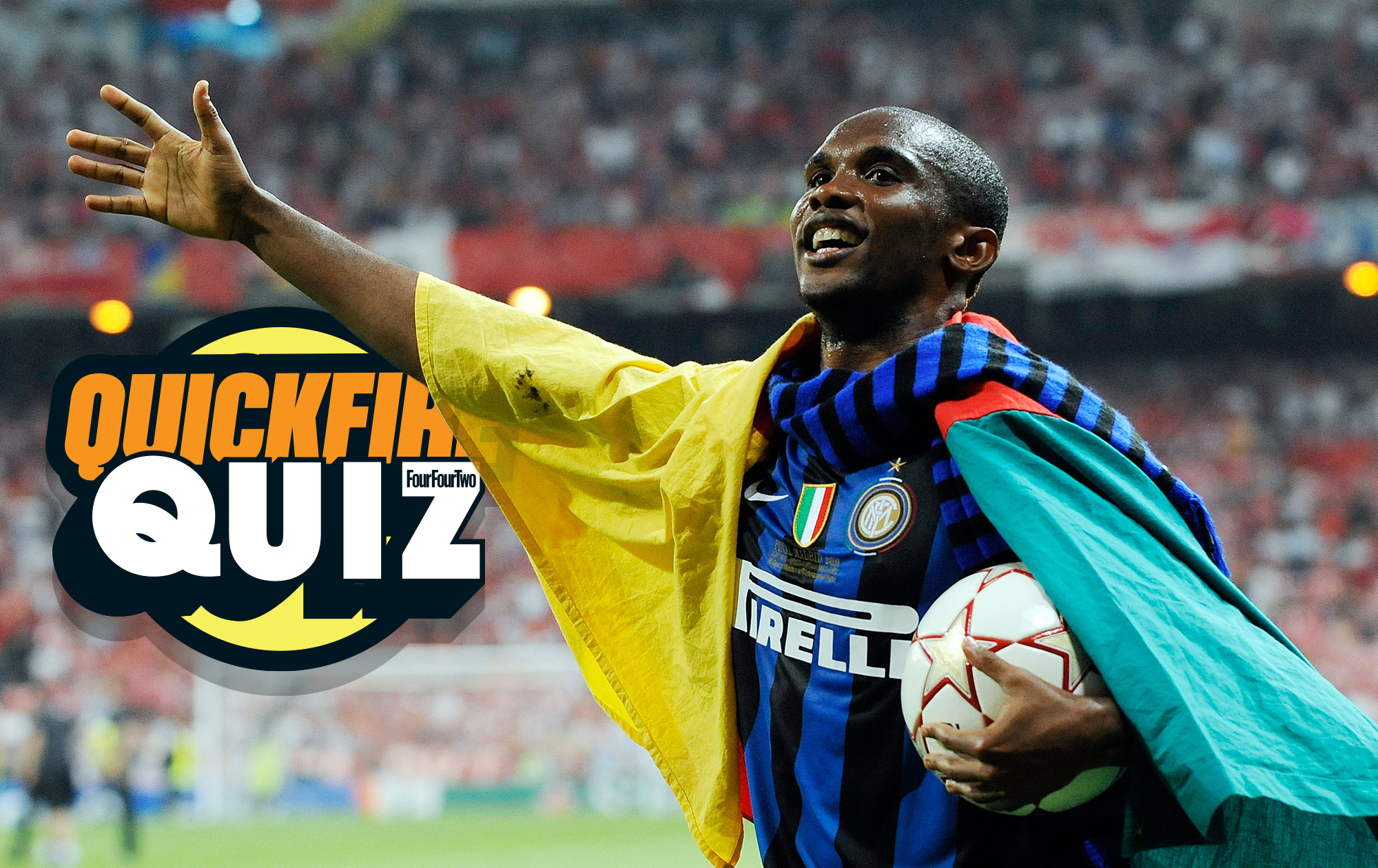Andy Mitten column: When ‘Manchester United in Australia’ meant gun-point robbery – and an assistant on the sauce
United’s 2019 tour isn’t quite so likely to make for drama like previous excursions...

The best features, fun and footballing quizzes, straight to your inbox every week.
You are now subscribed
Your newsletter sign-up was successful
Want to add more newsletters?

Five times a week
FourFourTwo Daily
Fantastic football content straight to your inbox! From the latest transfer news, quizzes, videos, features and interviews with the biggest names in the game, plus lots more.

Once a week
...And it’s LIVE!
Sign up to our FREE live football newsletter, tracking all of the biggest games available to watch on the device of your choice. Never miss a kick-off!
Join the club
Get full access to premium articles, exclusive features and a growing list of member rewards.
Manchester United are in Australia for the fourth time in their history and will play two games in Perth, a city with a substantial Mancunian expat population and vast United support. The players’ 17-hour direct flight on Sunday/Monday came aboard the world’s largest luxury charter plane – the longest ever to leave Manchester Airport.
Pre-season matches aren’t of the utmost importance, but United fans need some good news. Right now, any positive signs will lift fans underwhelmed by the disappointing end to last season and the club’s summer transfer activity so far.
As the club’s two most expensive signings, Paul Pogba and Romelu Lukaku, also want to leave, it could make for a more interesting than usual pre-season – although Manchester United’s previous trips to Australia have had their fair share of incidents.
United’s first foray down under in 1967 saw Paddy Crerand confronted by a robber in the team hotel. The combative midfielder told me how he returned to his hotel room above a bustling pub to find the door was half open.
“Just as I was drawing breath, a man leapt out from behind the door,” the Scot recalled. “It gave me the fright of my life, but before I could work out what was going on, he brushed past me and rushed down the corridor.
“‘Thief!’ I shouted, waking everyone up. ‘He’s a fucking robber.’”
Crerand gave chase barefoot and in pyjamas.
The best features, fun and footballing quizzes, straight to your inbox every week.
“He made for the stairs and because it was me chasing him and not one of the other players, he was soon running down them,” said Crerand.
“I was gaining on him and when I turned the last corner, which led to the foyer, he was only a few yards away. ‘Come here you bastard!’ I shouted. ‘And I’ll fucking kill you!’
“Given my reputation, that would have frightened rivals on a football field, but the robber suddenly stopped and turned. He looked at me. Rather than jump on him, I stopped too, because he was holding a little revolver by his waist. And he was pointing it at me. I looked at his gaunt features. He was man in his thirties with menacing, dark eyes. And it was him, not me, who was in control of the situation.
“‘If you come any closer I’m going to kill you,’ he said. It wasn’t so much the words as the way he said them. He didn’t shout. He simply made a matter-of-fact statement. And I didn’t doubt that he meant it.
“I didn’t back off, but turned and sprinted. Had Matt been awake he would have had a go at me for not running that quickly in a match, but I didn’t want to be shot before I’d won the European Cup and I ran straight back to the lads’ room where the burglar had sprung from.
“They were awake because of the commotion, but were still lying in bed. I explained what had happened and slammed the door shut behind me, half thinking that the thief was still chasing me and that he was going to kill me. ‘Fitz’ (John Fitzpatrick) had been robbed of a few dollars, but nothing else was missing.
“The next day we found that one of the Australian officials accompanying us had been robbed of 200 dollars. They never caught the thief.”
How things have changed since those more ‘relaxed’ days. Assistant manager Jimmy Murphy would go for a few pints each morning – he wasn’t one for luxury lounges and preferred working men’s bars. The injured Crerand would often accompany him each morning and take a soft drink as Murphy, a hugely respected and influential figure, liked to chat to strangers and there were some pretty odd characters in the bars he frequented: drunks, waifs and strays.
United’s tour was sponsored by a tobacco firm, and on most days one of their representatives would arrive with new supplies of cigarettes for the entire party. They were always delivered to Murphy’s room, and soon they were piled up high against the walls because hardly any of the players smoked. Murphy would redistribute the cigarettes to anyone who wanted them.
Crerand is now 80 and still working for MUTV. He attends most United games, though he won’t be in Perth.
Ole Gunnar Solskjaer and his squad will be under the spotlight in Australia’s fourth-biggest city, where they play Perth Glory on Saturday and Leeds United next Wednesday.
It’s highly unlikely that a player will have a gun pointed at him, or that the assistant manager will be nipping out for a few pints each day and distributing free ciggies; instead, there may be some engineered outrage about harmless social media postings and the usual claims that locals have been offended by some aspect of United’s arrangements.
The laxer regime of 1967 didn’t seem to have done any harm. United beat Perth 7-0 at the WACA despite having Denis Law sent off after 33 minutes – a decision that didn’t go down well with the crowd, who wanted to see him play. The referee was well known for being anti-swearing, and said later that he’d given Law his marching orders for suggesting that he shove his whistle somewhere that would have been very painful.
The list of goalscorers that day is straight from football’s hall of fame – the club had sent its strongest side, not a second string. Law managed a goal before he walked, George Best helped himself to a hat-trick, Brian Kidd got two and Bobby Charlton was the other icon on target.
Nine months later, Manchester United became the first English team to be crowned European champions. That was when United had a team full of heroes. Even just one from the current squad would be a start…
While you're here, why not take advantage of our brilliant subscribers' offer? Get 5 issues of the world's greatest football magazine for £5 – the game's greatest stories and finest journalism direct to your door for less than a pint in London. Cheers!
NOW READ
ANALYSIS 5 things Manchester United MUST achieve in Ole Gunnar Solskjaer’s first full season
INFO Premier League TV schedule: When your club has been picked for live coverage in 2019/20

Andy Mitten has interviewed the likes of Lionel Messi, Eric Cantona, Sir Alex Ferguson and Diego Maradona for FourFourTwo magazine. He also founded and is editor of United We Stand, the Manchester United fanzine, and contributes to a number of publications, including GQ, the BBC and The Athletic.
 Join The Club
Join The Club











